Brexit: It’s a fixture in the news and at the centre of all political discourse. Yet despite all the commentary, there is huge uncertainty about what it will mean for organisations, of all shapes and sizes, and their employees. At times like these, having strong internal communications is essential to keep your teams motivated and your business thriving.
We spoke to our Director of Internal Communications and Employee Engagement at Athene Communications, Emma McMillan, to find out more.
Emma, what exactly is internal communications?
Fundamentally, internal communications is the strategic management of communications between all employees and stakeholders within an organisation, whether that’s top-down, bottom-up or cross-organisation.
With effective internal comms, ideally you’re looking to establish dialogue across the organisation. That includes making sure employees have the information they need, whether that’s key company messages, business objectives or an explanation of changes that might be taking place, as well as gaining valuable feedback from staff, sharing best practice and creating a strong sense of belonging. On a practical level, this dialogue can be facilitated by a range of channels, such as intranets, blogs, internal social media, emails, newsletters and face to face interaction.
Why bother with internal communications?
If an organisation invests time and effort into establishing effective internal communications, they can help employees to see how their work contributes to the wider success of the business. Organisations can expect to see a boost in productivity and innovation, an increase in staff morale, higher staff retention, and lower staff absenteeism. There are a number of other benefits too, such as improving employee wellbeing.
Here at Athene, we help clients to achieve these goals in a number of ways. We provide internal comms and engagement audits to review the effectiveness of existing internal communications within an organisation and offer a series of recommendations for how they can improve their internal comms. We also support transformation programmes, helping organisations to communicate with their employees in times of change. I think one of our strengths is that we act as an extended member of the team, spending time to really get to know the organisation, its culture and its employees, at the same time as being able to offer objective advice and support, whether that’s to the most junior members of staff or the chief executive.
What is the role of internal communications with Brexit?
Organisations are naturally cautious about making decisions about their future when the impact of Brexit is so unclear. The primary function of internal comms should be to reassure your teams, especially when there may be uncertainty about jobs, and how the economy and markets may react to Brexit – particularly a no-deal Brexit. So, the primary function of internal comms at this time should be to provide as much clarity and reassurance as you are able to. Communicating with your teams regularly, even if you may not have all the answers, will help keep them informed and build trust.
What are your top tips for communicating with staff about Brexit?
- Communicate often
Never underestimate the power of silence; saying nothing because you’re not sure of the answers is likely to have a negative impact on your teams. Try to avoid creating a vacuum that encourages the rumour mill to flourish! Communicating regularly and honestly is essential. Even if you don’t have new information to share, be honest about this, repeat your key messages and give your teams the opportunity to tell you what it is that they’re worried about.
- Have a plan
It sounds a bit obvious, but it’s often overlooked as we rush into action! Take the time to think about what it is your employees need to hear and how you need them to respond. Don’t underestimate the value of setting out some key messages for your organisation, giving you a solid foundation for all your communications. Consider the resources that you’ll need to help you communicate effectively – who is going to help make sure you have a consistent message? How will you gather input and insight from your teams? Which channels will be most effective for enabling dialogue with your employees? Setting out a short, simple plan can often pay dividends – it makes sure everyone is on the same page and will certainly help you to avoid putting out conflicting messages.
- Equip
Managers have a significant role to play in communicating with their teams. Make sure you equip them with the information and resources they need to communicate any changes and support their teams effectively. They need to know what’s expected of them, so brief them clearly and give them the opportunity to shape your approach to communications.
- Reassure
Your teams will naturally look to leaders in the organisation for reassurance in times of change or uncertainty. The visibility of your leadership team will be invaluable. This doesn’t have to be hugely time-consuming either. Can the chief executive take half an hour, even just once a week, to walk around the office, stopping to chat to employees? This simple gesture will show openness and approachability that will make a big difference to your teams. Regular in-person updates from your leadership team in the form of town hall sessions or similar are also important.
- Evaluate and Evolve
Don’t assume that just because you have a plan to communicate, it’s having the impact you need! It’s always worth checking in with your teams to evaluate the effectiveness of your internal comms. Is it making a difference? Are you reaching everyone? Do they have the information they need? Have their needs changed at all? Being ready to adapt and evolve your messaging and approach is key. You could consider having change champions in different parts of the organisation to help you gather the insights you need to evaluate.
If you’d like to explore how internal communications could help you engage with your employees more effectively, please give Athene a call on 01733 207348 or email emma@athene-communications.co.uk
